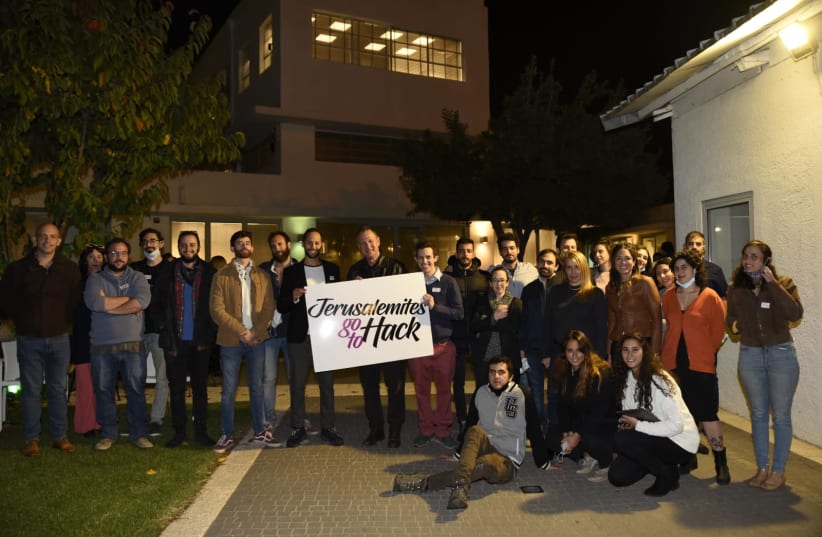Young entrepreneurs from Beit Hanina, Shuafat, Rehavia, Katamon, Baka, Talpiot and Beit Safafa gathered on the lawn at Margalit Startup City, home for startups, associations, and the Jerusalem Venture Partner Fund (JVP).
“People think of Jerusalem as a city which is just fought over, but we are proving that it is a city of creativity”, said JVP founder and chairman of Margalit Startup City, Erel Margalit.“This is a special city with hi-tech and innovation, with the ability to turn west to Europe and the US, and east to the Middle East and Asia. The young entrepreneurs are bringing energy to the city, and they are the people making the connections. This meeting proves the power we have in building big things together," Margalit said.
The meeting began with an initial round of one-minute presentations from each entrepreneur to their fellow Hackathon participants.
Saida Kurdia presented her project which aims to utilize technology to ensure healthy eating. Yusuf Awada said that as a waiter he was shocked by the level of food waste, and presented an idea for an app for an app that locates and distributes surplus food to the needy.
Gilad Sevitt and Michal Rosen presented an app to help those who want to learn spoken Arabic, while Ditza Keren presented her initiative for a center for Jewish and Arab musicians.
Additionally, Ohad Stosel presented an idea for an app that enables users to compare old pictures of Jerusalem to their modern day locations, as they are visited.
After presenting their ideas, Hackathon participants split into groups in order to build the models and solve the technological problems in each one's idea. The models were then presented to judges who gave constructive comments on each project.
“This meeting is a dream come true. I have been in a lot of peace programs, but never in Jerusalem. Let's learn together and succeed together. Diversity will win out," said Adnan Jaber, one of the event organizers.
